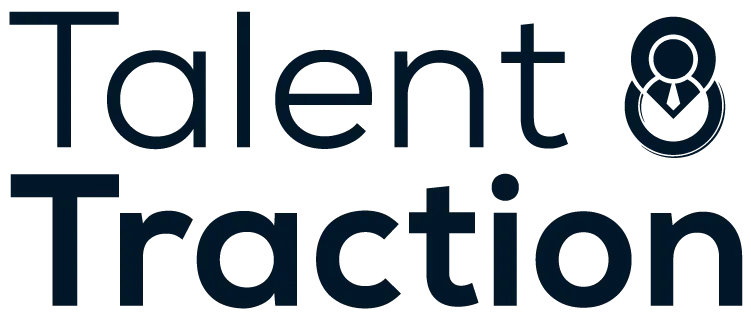
What Trump Administration May Mean for Your Business
By Mike Cioffi
As Donald Trump prepares for another term, businesses across multiple sectors should brace for impactful changes in labor regulations, immigration policies, and workforce management. These shifts might include stricter rules on immigration and revisions to wage and labor laws. In this article, I’ll explore how these developments could influence industrial companies and offer actionable steps to help you stay prepared. The insights shared here are grounded in research available as of early December 2024.
1: Immigration Enforcement—A Return to Strict Policies
Trump has indicated plans to reinstate stringent immigration measures, emphasizing rigorous scrutiny of hiring practices and increased audits. This approach could create challenges for employers relying on immigrant labor in manufacturing, distribution, and other industrial roles.
What This Means for Your Business:
Heightened risk of fines for non-compliance with I-9 and E-Verify regulations.
More frequent audits may disrupt hiring processes, especially in areas heavily reliant on immigrant workers.
Actionable Takeaway: Regularly verify employees’ work eligibility through E-Verify and conduct internal audits to maintain compliance with I-9 requirements.
2: Labor Condition Applications (LCA) and Wage Requirements
Proposed changes to labor visa programs, including stricter prevailing wage criteria for H-1B visa holders, could pose challenges for attracting specialized talent. This may particularly affect roles like engineers and technical experts, which often rely on foreign professionals.
What This Means for Your Business:
Higher wage benchmarks could complicate the hiring of skilled foreign workers.
Budgetary constraints may arise due to increased costs for employing foreign talent.
Actionable Takeaway: Anticipate wage adjustments for technical positions and refine your recruitment strategies to ensure competitive and compliant compensation packages.
3: Wage and Hour Laws—Potential Changes Ahead
Wage and hour regulations may see notable revisions. While Trump has expressed conditional support for increasing the federal minimum wage, his administration may also revisit overtime rules, potentially broadening the scope of employees eligible for overtime pay and making tax changes regarding tips.
What This Means for Your Business:
Modifications to overtime rules could elevate operational costs, particularly in industries with a high hourly workforce.
Shifts in wage or tip taxation laws might require adjustments in compensation structures for service roles.
Actionable Takeaway: Stay informed about proposed changes to wage and hour laws. Assess the potential impact on your workforce, including compliance with overtime, minimum wage, and tip-related regulations.
4: Union and Worker Rights—A Push for Right-to-Work Laws
Trump has reiterated his support for right-to-work laws, which allow employees to opt out of union membership and dues. His administration is expected to continue limiting union influence through appointments to the National Labor Relations Board (NLRB) and policy changes.
What This Means for Your Business:
Adjustments to union policies may influence employee relations, especially in unionized environments.
Changes in NLRB rulings could reshape unionization efforts and impact collective bargaining dynamics.
Actionable Takeaway: Monitor changes in union policies and maintain open communication with employees. Foster a positive workplace culture to mitigate potential disruptions.
5: Paid Leave and Benefits—Impact on Employee Retention
Trump’s positions on family leave and healthcare could significantly affect employee satisfaction and retention. Although his earlier term extended paid family leave for federal employees, the private sector’s direction remains uncertain.
What This Means for Your Business:
Changes in paid leave policies could influence employee morale and turnover rates, particularly in sectors like manufacturing, where high turnover is common.
Businesses might need to enhance benefits to remain competitive in attracting and retaining talent.
Actionable Takeaway: Evaluate your benefits offerings in anticipation of potential changes to family leave and healthcare policies. A strong benefits package can reduce turnover and boost your appeal as an employer.
6: Tariffs on EVs and Auto Components—Impact on U.S. Manufacturing and Employment
Trump’s focus on protectionist trade policies, including tariffs on imported electric vehicles (EVs) and auto parts, is likely to intensify. This approach could drive a shift toward domestic production while presenting new challenges for manufacturers and distributors.
What This Means for Your Business:
Tariffs could encourage local sourcing but may also increase production costs.
Deregulation efforts could lower administrative burdens, such as inspections and OSHA compliance requirements.
Infrastructure investment priorities, including highways, could fuel growth in transportation and related sectors.
Actionable Takeaway: Adapt sourcing strategies to prioritize domestic production where feasible. Explore tax incentives and remain flexible to regulatory shifts, balancing costs and compliance effectively.
7: Non-Compete and Environmental Policies—Impact on Business Operations
Trump’s stance on non-compete agreements and environmental deregulation could influence business operations significantly. His administration previously prioritized reducing regulatory barriers, including emissions and safety standards, to support businesses.
What This Means for Your Business:
Relaxed restrictions on non-compete agreements may increase workforce mobility.
Reduced environmental regulations could lower operational costs but may also raise concerns about sustainability and corporate responsibility.
Actionable Takeaway: Reassess non-compete agreements and compliance with environmental standards. Strike a balance between leveraging regulatory flexibility and maintaining a commitment to sustainability.
Conclusion
Industrial companies are poised for substantial regulatory changes that could reshape workforce strategies. By proactively preparing for these shifts, businesses can maintain compliance, remain competitive, and adapt to evolving labor laws. The key to thriving under a second Trump administration will be forward-thinking strategies and the ability to navigate complex workforce dynamics.
Mike Cioffi is the founder of Talent Talent, a boutique recruiting agency dedicated to your industry. You can reach him directly: [email protected] if you have any questions about this article.




Facebook
LinkedIn
Youtube
Instagram